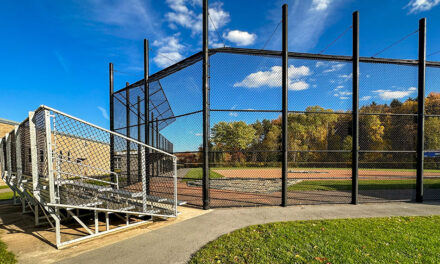Being a high school athletic director extends beyond scheduling games and hiring coaches—it’s a leadership role that involves an ever-changing set of skills. As scholastic athletics continue to evolve with advancements in technology, safety protocols, and diversity initiatives, it’s crucial to stay ahead of the curve. Investing in professional development may be optional, but it’s necessary to stay up-to-date. Whether through certifications, continuing education, networking, or mentorship, athletic directors who prioritize personal growth create stronger, more well-rounded experiences for their student-athletes.
Certifications & Credentials
One way athletic directors advance their careers while simultaneously validating their expertise is through pursuing professional certifications. The National Interscholastic Athletic Administrators Association (NIAAA) offers highly respected credentials, including:
- Registered Athletic Administrator (RAA)
- Certified Athletic Administrator (CAA)
- Certified Master Athletic Administrator (CMAA)
These certifications demonstrate a commitment to professional growth and mastery of sports management, compliance, and leadership. Completing these programs provides access to valuable resources and a network of like-minded professionals. Beyond NIAAA, the NFHS (National Federation of State High School Associations) offers specialized training in sports safety, legal issues, and ethics, making it an excellent supplement to NIAAA credentials.
Conferences & Networking Events
Attending industry conferences and leadership summits is one of the most effective ways for athletic directors to stay ahead. These events provide opportunities to:
- Network with peers and learn best practices.
- Gain insights from experts in athletic administration.
- Explore emerging trends in coaching, budgeting, and facility management.
Some must-attend events are:
- National Athletic Directors Conference (NADC) – Hosted by NIAAA and NFHS, this is the premier gathering for high school ADs.
- State Athletic Director Conferences – Each state hosts its own event to address region-specific challenges.
- NCAA Convention – While primarily for college sports, this event offers insights into sports governance and compliance that can benefit high school ADs.
- Local and Regional Workshops – Often hosted by high school athletics associations, these events provide hands-on training and policy updates.
Workshops & Continuing Education
University courses, online certifications, and leadership workshops expand athletic directors skills. These programs cover essential topics like:
- Budget management and fundraising
- Sports law and compliance
- Equity in athletics
- Crisis management and conflict resolution
Top Educational Opportunities:
- NIAAA Leadership Training Institute (LTI): A structured program covering all facets of athletic administration.
- Master’s in Sports Administration: Many universities offer online and in-person programs tailored for ADs.
- Online Courses from NFHS and NCAA: These platforms offer affordable, self-paced courses on coaching education, leadership, and sports medicine.
Many districts offer tuition reimbursement for continuing education, making it financially viable for ADs to enhance their expertise.
Mentorship & Peer Learning
One of the most effective professional development opportunities is mentorship. Whether through formal mentorship programs or informal networking, learning from experienced ADs is invaluable.
Ways to Engage in Peer Learning:
- Join a Mentorship Program: NIAAA and state athletic associations pair newer ADs with seasoned professionals.
- Form Local AD Networks: Regular meetups with local ADs provide support and practical solutions to shared challenges.
- Engage in Online Communities: Platforms like LinkedIn, Twitter (X), and AD-focused forums facilitate ongoing conversations about industry best practices.
Industry Research & Emerging Trends
The landscape of scholastic sports is constantly evolving, which means ongoing research and trend analysis is essential for athletic directors. Key areas to focus on include:
- Technology in Sports Management – Leveraging data analytics, online scheduling, and digital communication tools.
- Athlete Mental Health & Wellness – Implementing strategies to support student-athletes’ mental well-being.
- DEI (Diversity, Equity, and Inclusion) in Athletics – Ensuring equitable access and participation across all programs.
Reliable Sources for Industry Insights:
- NIAAA and NFHS Reports – Regular updates on policy changes and best practices.
- Journal of Applied Sport Management – Research-driven insights into athletic administration and leadership.
- Podcasts and Webinars – Athletic Director talks offer timely discussions on pressing issues.
A Continuous Journey
Professional development is a constant process of personal improvement. Athletic directors who actively pursue certifications, networking, continuing education, mentorship, and industry research position themselves as leaders in high school sports. By investing in their expertise, ADs not only advance their own careers but also improve the overall experience of their student-athletes.










